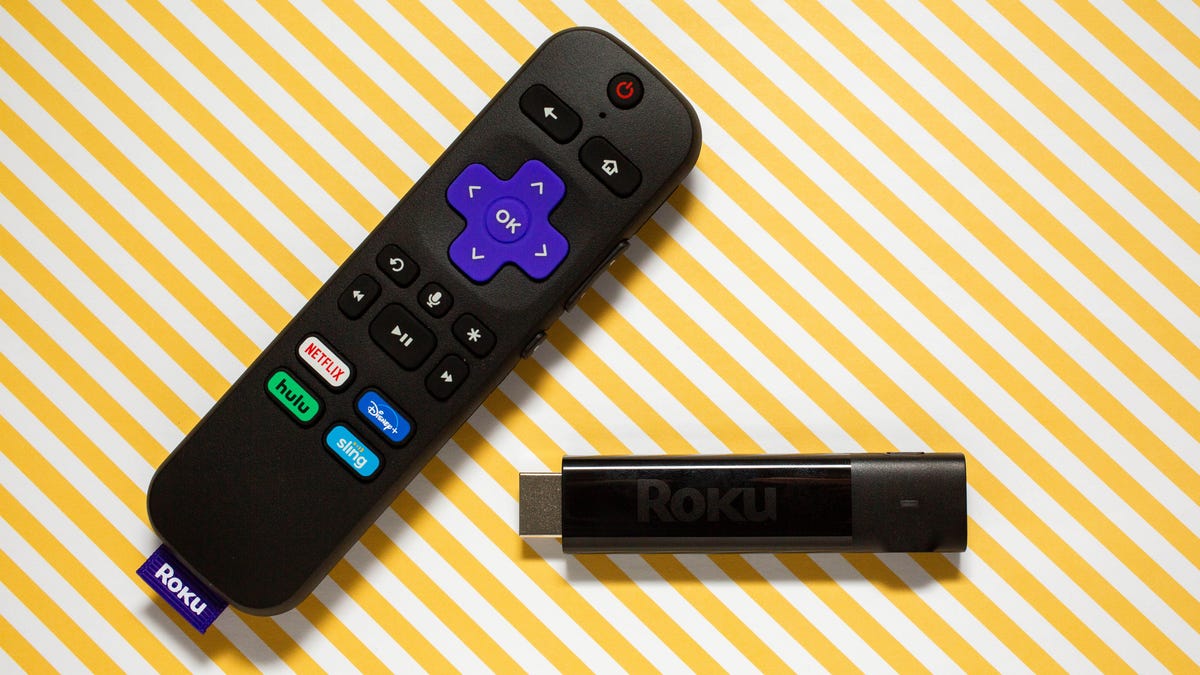 Why You Can Trust CNET
Why You Can Trust CNET
Roku: YouTube TV app removed from channel store as deal with Google ends
Roku users who already have the YouTube TV app on their devices can still stream, but new YouTube TV customers can't sign up or download it on Roku.

Roku's streaming devices are among the most popular in the US.
Roku said Friday that Google's live TV streaming service, YouTube TV, has been removed from its channel store because the companies' distribution agreement has expired. Roku users who have already installed YouTube TV on their devices can continue to stream it, but no new customers can sign up for YouTube TV on Roku -- nor download the channel if it isn't already installed.
The main YouTube app on Roku is unaffected. Roku's standoff with Google concerns only the app for YouTube TV, a subscription service that streams live television channels, typically used as an alternative to cable or satellite for cord-cutters.
YouTube TV's removal from Roku's store is an escalation of a standoff between two technology powers. Google is one of the most monolithic companies in tech, with domination of markets like internet search and advertising that's so strong it's facing a host of investigations into monopoly abuse. Roku is far smaller, but it has emerged as one of the leading forces in streaming TV distribution, an area that has only grown -- both in popularity and opportunity -- during the pandemic.
Roku is "disappointed that Google has allowed" the agreement for YouTube TV to expire, the company said in a statement. Roku reiterated points it made earlier this week when it first disclosed that the service could potentially be removed from its platform: The company said that it isn't seeking greater payments from Google but is standing firm on points such as search-result manipulation, access to data, hardware requirements that could increase devices cost and what it claims are "discriminatory and anticompetitive" actions by Google.
YouTube denied making "any requests to access user data or interfere with search results," saying the claim is "baseless and false."
"Our agreements with partners have technical requirements to ensure a high quality experience on YouTube," it said in a statement Friday. "Roku requested exceptions that would break the YouTube experience and limit our ability to update YouTube in order to fix issues or add new features. For example, by not supporting open-source video codecs, you wouldn't be able to watch YouTube in 4K HDR or 8K even if you bought a Roku device that supports that resolution."
More streaming advice
- 10 Ways to Save Money on Streaming
- How to Cut the Cable TV Cord in 2023
- See More at Streaming TV Insider
Google is facing attacks and investigations into whether it abuses monopoly power on several fronts. Last week, Google was grilled by senators on an antitrust subcommittee about accusations it uses the marketplace heft of its Google Play app store to retaliate against rivals and entrench its own power.
Carriage disputes between programmers and distributors are nothing new: They're a routine annoyance for customers of traditional cable and satellite TV. But up until last year, these kinds of service "blackouts" were one of the ways streaming set itself apart from the aggravations of television's past.
In the last year, however, they've cropped up with the rollouts of big, new streaming services, with both HBO Max and NBCUniversal's Peacock failing to launch with Roku support. The standoff between Roku and Google demonstrates that even with long-established apps, companies on both sides may agitate to get the upper hand as the dynamic of power evolves toward TV's future.
The tensions come as streaming has grown more popular than ever, amplifying a long trend of people watching more video via the internet. Streaming distributors like Roku and streaming programmers like YouTube both want to control the data, money, programming and discovery tools at the heart of your streaming. Both sides also want to entrench themselves in positions of power for the next era of television.
Google said in October that YouTube TV has more than 3 million subscribers. That number is dwarfed by the more than 2 billion people who watch YouTube's main video service. But most YouTube viewing occurs on mobile devices, and YouTube TV -- though much smaller -- is the kind of service that tends to be watched most on televisions, often via a streaming device like Roku.
CNET's Sean Keane contributed to this report.
Correction, May 3: An earlier version of this article misstated the number of YouTube TV's subscribers.

